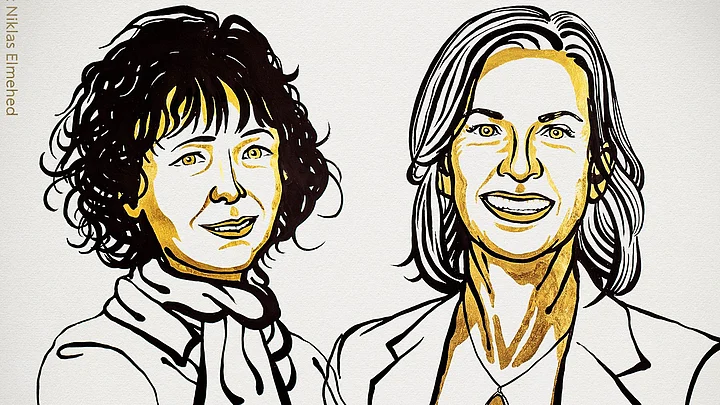The 2020 Nobel Prize in Chemistry was on Wednesday, 7 October, awarded to Emmanuelle Charpentier and Jennifer A. Doudna “for the development of a method for genome editing”, one of gene technology’s sharpest tools – the CRISPR/Cas9 genetic scissors.
“Using these, researchers can change the DNA of animals, plants and microorganisms with extremely high precision. This technology has had a revolutionary impact on the life sciences, is contributing to new cancer therapies and may make the dream of curing inherited diseases come true,” a press release from the Nobel Committee stated.
Doudna was born in 1964 in Washington, D.C, USA, and is a Professor at the University of California, Berkeley, while Charpentier was born in 1968 in Juvisy-sur-Orge, France, and is Director of the Max Planck Unit for the Science of Pathogens, Berlin, Germany.
The Nobel Prize in Chemistry is awarded by The Royal Swedish Academy of Sciences, Stockholm, Sweden.
On Monday, the Nobel Committee announced the award for physiology and medicine while Tuesday's prize for physics went to Roger Penrose of Britain, Reinhard Genzel of Germany and Andrea Ghez of the United States for their work on understanding black holes.
In 2019, the Nobel Prize in Chemistry was awarded to John Goodenough, M. Stanley Whittingham and Akira Yoshino “for the development of lithium-ion batteries”. The Nobel Prize website enlists their achievement and says:
“Through their work, they have created the right conditions for a wireless and fossil fuel-free society, and so brought the greatest benefit to humankind.”
Other former winners of this prize include Marie Curie, Ernest Rutherford, Jacques Dubochet and Dorothy Crowfoot Hodgkin.
(At The Quint, we question everything. Play an active role in shaping our journalism by becoming a member today.)
